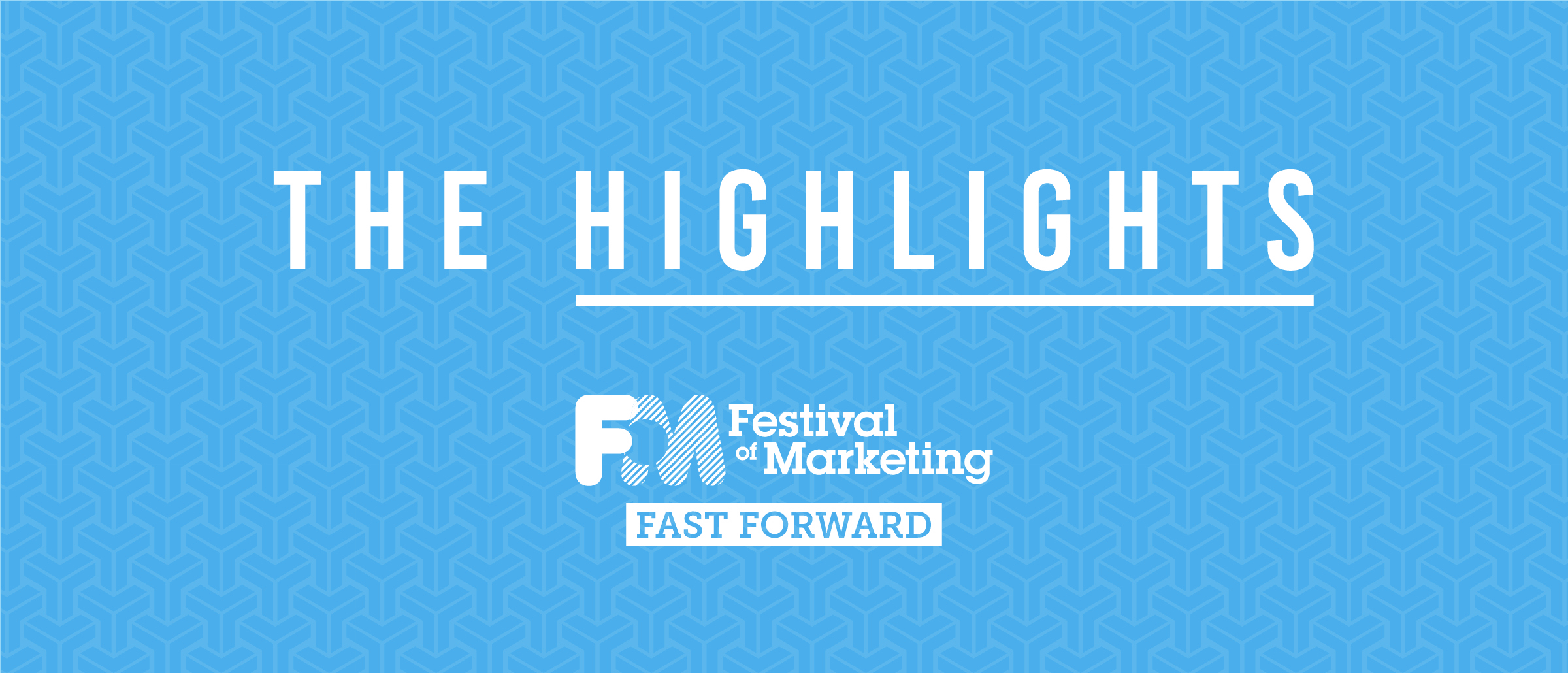Ritson on why successful marketers make time to listen
Marketing Week ReportersListening is a key attribute of high-performing marketers, alongside empathy, curiosity and an ability to make even the complex look simple, says Mark Ritson.

Analysis of all the key moments from the event, looking at how marketers can future proof their brand through innovation and new ways of working.
Listening is a key attribute of high-performing marketers, alongside empathy, curiosity and an ability to make even the complex look simple, says Mark Ritson.
Pinterest collaborated with users to develop its AR make-up product, a sign says marketing boss Louise Richardson of the social media platform understanding the responsibility that comes with innovation and the need to add real customer value.
Viewing sustainability as a ‘key component’ of the brand, Nestlé global CMO Aude Gandon believes wider issues like climate change and social justice can be addressed on both a global and local level.
Chief digital and marketing officer Conny Braams believes if marketers can’t distil complex information into simple and transparent messages then they’re not doing a good enough job.
Reading the ‘tea leaves of culture’ and choosing to prioritise empathy are reasons why the global ecommerce giant continues to grow at pace, according to Amazon Studios CMO Ukonwa Ojo.
The online delivery brand’s marketing boss believes that it has now become an essential part of our everyday lives, rather than an occasional treat.
Finding a balance of collaborators, challengers and “super-curious interrogators” is key to any successful team restructure, says Benefit Cosmetics marketing director Lou Bennett.
The Ogilvy vice-chairman believes marketers’ obsession with engaging in a short-term “cost-cutting game” means lost opportunity and damaged resilience.
Rather than relying on high brand recognition, Weetabix’s head of brand Gareth Turner explains the breakfast business has continued to innovate while keeping consistent with its brand DNA, honed over the past 90 years.
Describing Covid as an accelerator for innovation, the global health and hygiene company believes courage is needed to create a culture comfortable with taking educated risks, although there is no one size-fits-all recipe for success.
Speaking at the Festival of Marketing, GSK’s Sandra McDill explains why Covid-19 convinced the business that adopting an agile approach was the best way to stay ahead of the game.
The end of the third-party cookie and unprecedented behavioural shifts are combining to create an imperative for change in how marketers deal with consumer data.
The food delivery brand knows engagement depends on timing and context, and that getting these right makes the difference to business outcomes.
Organisations with greater CX maturity are seeing their ability to demonstrate returns put them in a stronger position to invest, at a time when digital experiences are making the difference in winning customers’ business.
Data is a growing part of how brands target consumers more effectively and personalise services, but it must be assessed through the lens of human emotion.
The world needs brands to be more emotionally intelligent and to show a more caring, compassionate and empathetic side.
Wunderman Thompson UK’s Sid McGrath advised Festival of Marketing attendees how to avoid becoming a ‘Humpty Dumpty’ marketing case study, as brands lose sight of how their business is connected.
Using insight to create valuable, relevant content can form the basis of agenda-setting campaigns for B2B brands, as Festival of Marketing attendees found out.
Brands across the board are adapting the way they operate in order to pounce on opportunities as they arise. Hear how Boots, Lenovo and Habito are future-proofing their marketing teams.
Speaking at the Festival of Marketing, Lego’s marketing director Mark Blackburn said most brands will be able to identify “significant barriers” to true customer centricity.
The Covid crisis has flattened corporate hierarchies and bridged the generation gap between marketers with decades’ worth of experience and those just starting out, according to customer director Martin George.
The evolution of the CMO role means the relationship with the chief technology officer could be just as – if not more – important than the relationship with the sales director, says Bibby.
To explore the ‘art of the possible’ even in times of adversity, teams must feel empowered and fully supported, according to marketing leaders from Zoopla, HSBC and Benefit Cosmetics.
Global CMO Aude Gandon explains how Nestlé is ensuring its marketing function is set up to meet new challenges in ecommerce, data and sustainability.
While on the surface it might appear they don’t have much in common, gourmet popcorn brand Joe & Seph’s and FMCG giant Essity both agree the pandemic has made innovation more important than ever.
Marketers at the top of their game possess 10 key traits, according Mark Ritson, from the willingness to trangress, an affinity with simplicity and an understanding that strategy means sacrifice.
Head of brand Gareth Turner explains how adopting a more innovative approach to marketing is helping Weetabix to grow over the long term.
Just Eat’s CMO Susan O’Brien says marketers must connect with consumers on a daily basis and continually remind themselves that they are not the customer.
As we move increasingly into virutal worlds and the very notion of self changes, brands must prepare for a time when personal brands usurp corporate brands, predicts futurist Tracey Follows.
Amazon Studios’ marketing boss Ukonwa Ojo explains why every mistake is an opportunity and why she sees empathy as a critical enabler for building relationships with customers.